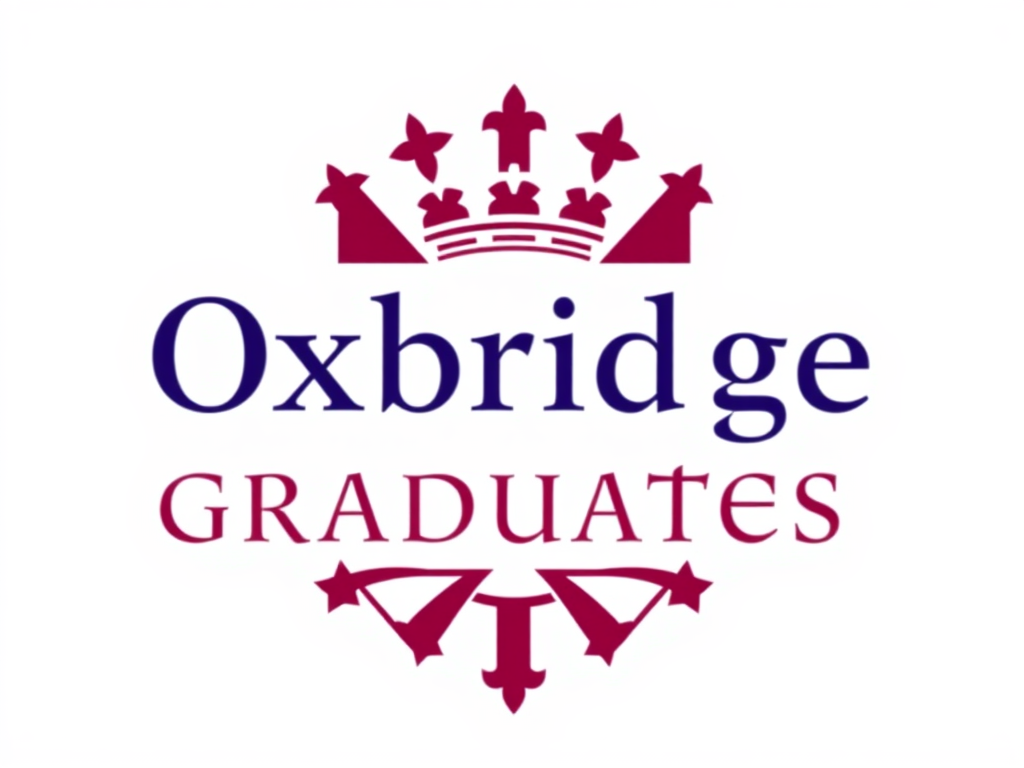Actionable Strategies for Enhancing Talent Management in UK Companies
Effective talent management practices UK require agile and flexible frameworks that can swiftly adapt to dynamic market conditions. One key actionable strategy is designing talent processes that align closely with core business goals, ensuring that recruitment, development, and retention directly support UK companies’ strategic objectives. For instance, integrating workforce planning with business forecasting can optimise talent deployment and help avoid costly skill gaps.
Addressing UK-specific challenges is essential. The competitive landscape and evolving employee expectations necessitate tailored approaches to attract and retain top talent. Developing a compelling employer brand, offering flexible work arrangements, and enhancing employee value propositions are vital steps in this process.
In parallel : How Can Businesses in the UK Navigate the Challenges of Remote Management?
Furthermore, talent optimisation benefits from continuous feedback mechanisms and real-time performance analytics. Organisations that leverage data-driven insights can refine talent strategies, improve employee engagement, and drive retention more effectively. Prioritising adaptability and alignment with the UK market’s unique characteristics is paramount for sustained talent success.
Actionable Strategies for Enhancing Talent Management in UK Companies
Effective talent management practices UK rely on agile, flexible frameworks that adapt quickly to business needs and market shifts. Implementing such frameworks means companies can respond to challenges like skill shortages and shifting workforce expectations prevalent in the UK.
Topic to read : What Challenges Do UK Businesses Face in Effective Management?
Aligning talent strategy explicitly with business goals strengthens talent optimisation efforts. This alignment ensures recruitment, development, and retention initiatives support core objectives such as innovation, productivity, or market expansion in the distinct UK environment.
UK-specific challenges include navigating competitive recruitment markets and mitigating high attrition rates. A strategic approach involves tailored employer branding and flexible working arrangements—both crucial for attracting and keeping top UK talent.
Employing actionable strategies such as data-driven decision-making enhances insight into workforce dynamics. Leveraging real-time analytics enables organisations to optimise talent deployment and development, essential components of sustained talent optimisation in UK companies.
Success hinges on an ongoing cycle of evaluating and adjusting talent management practices UK to reflect evolving business landscapes and workforce expectations. This dynamic approach encourages resilience while maximising the value derived from human capital.
Compliance with UK Employment Laws in Talent Management
Navigating UK employment law is crucial for effective talent management practices UK. Legal compliance ensures organisations avoid penalties while fostering fair and ethical workplaces. Central to this is integrating equality and anti-discrimination regulations, including adherence to the Equality Act 2010, which protects employees from unfair treatment based on characteristics like age, gender, and race.
Managing employee contracts and working hours is another vital aspect. UK law regulates contract terms, statutory notice periods, and limits on working hours under the Working Time Regulations 1998, safeguarding employees’ rights and well-being. Companies must ensure contracts comply while maintaining flexibility.
As UK employment legislation evolves, staying updated is essential for talent optimisation. Recent changes include enhanced family-friendly rights and protections against unfair dismissal. Implementing proactive HR policies aligned with these legal frameworks helps retain top talent and minimizes legal risks.
This legal foundation supports sustainable, fair talent management practices UK-wide and promotes organisational resilience. Regular training on legal compliance for HR teams strengthens execution and aligns talent strategies with legislative requirements, underpinning overall business success.
Compliance with UK Employment Laws in Talent Management
Navigating UK employment law is fundamental in shaping effective talent management practices UK companies must adopt. Legal compliance involves upholding stringent standards concerning equality and anti-discrimination regulations to foster fair recruitment and retention processes. Ensuring all hiring practices comply with the Equality Act 2010 prevents bias and supports workplace diversity.
Employee contracts and working hours fall under strict HR regulations. Companies must align contracts with UK legal requirements, including minimum wage, holiday entitlements, and working time limits. For example, adhering to the Working Time Regulations ensures employees have mandatory rest breaks and maximum weekly working hours, critical for legal compliance and employee wellbeing.
Staying current with evolving UK employment legislation challenges organisations to remain agile. Recent changes in areas such as flexible working rights and data protection directly impact talent management policies. Implementing robust compliance frameworks mitigates legal risks, supports transparent communication, and maintains trust between employers and employees.
By integrating these legal components into talent management practices UK firms reinforce accountability and cultivate a compliant, ethical workplace culture that sustains long-term talent optimisation.
Actionable Strategies for Enhancing Talent Management in UK Companies
Implementing agile and flexible talent management frameworks is fundamental for UK companies facing rapid market changes. These frameworks empower organisations to adapt recruitment and development processes swiftly, addressing skill shortages and fluctuating workforce needs effectively. Flexibility allows companies to refine talent optimisation continuously, maintaining alignment with shifting priorities.
Aligning talent strategy with core business goals is another essential actionable strategy. In the UK market, this alignment ensures that talent initiatives—such as hiring, training, and retention—directly support objectives like innovation, productivity enhancement, or geographic expansion. This integrated approach maximises the impact of talent management practices UK-wide.
Addressing specific challenges unique to the UK, such as stiff competition for high-demand skills and evolving employee expectations, requires targeted strategies. Focusing on employer branding, flexible work arrangements, and personalised development opportunities helps attract and retain top talent in this context. Together, these approaches underpin successful talent optimisation tailored to the UK business landscape.
Leveraging Technology to Modernise Talent Management
Transforming talent management practices UK through HR technology UK has become essential for competitive advantage. Implementing talent management software like applicant tracking systems (ATS) streamlines recruitment by automating candidate screening and reducing hiring time. These tools increase precision in matching skills to job requirements, enhancing the quality of hires.
Beyond recruitment, HR analytics offer data-driven insights that support strategic workforce planning and talent optimisation. Organisations can identify trends in employee performance, predict turnover risks, and tailor development initiatives effectively. Integrating digital onboarding platforms further improves the employee experience by providing a consistent, engaging introduction to company culture and processes.
Artificial intelligence (AI) is another transformative element in HR technology UK. AI-powered tools assist in candidate sourcing and evaluating cultural fit, while machine learning algorithms can personalise retention strategies. These innovations reduce biases and increase efficiency, enabling UK companies to adapt swiftly in a dynamic labor market.
Overall, embracing digital transformation through talent management software and AI enables organisations to modernise practices, improve decision-making, and maintain agility in talent management across the UK landscape.
Actionable Strategies for Enhancing Talent Management in UK Companies
Implementing agile and flexible talent management frameworks is essential for UK companies to remain competitive amid rapid market changes. Such frameworks enable organisations to swiftly adjust recruitment, training, and retention processes to meet evolving business needs and talent shortages. Flexibility in talent optimisation helps ensure resources are allocated effectively where demand shifts.
Aligning talent strategy tightly with core business goals drives measurable value. In the UK market, this requires integrating talent management practices UK-wide with objectives like innovation, productivity growth, or geographic expansion. When talent initiatives support specific business priorities, companies maximise return on investment while fostering workforce engagement.
Addressing UK-specific challenges involves recognising the intense competition for skilled professionals and changing employee expectations. Organisations can use actionable strategies such as enhancing employer branding, offering flexible work arrangements, or providing tailored development pathways. These approaches help attract and retain high-calibre talent, directly impacting long-term success in the UK’s dynamic labour market.
Ultimately, these strategies support sustainable talent optimisation by balancing adaptability with strategic focus across recruitment, development, and retention efforts in UK companies.
Actionable Strategies for Enhancing Talent Management in UK Companies
Implementing agile and flexible talent management frameworks enables UK businesses to respond effectively to rapid market shifts and workforce changes. These frameworks foster quick adjustments in recruitment, onboarding, and development initiatives, ensuring continuous talent optimisation. Agility in these processes helps tackle UK-specific workforce challenges like skill shortages and high employee turnover by allowing tailored responses.
Aligning talent management practices UK with core business goals is essential. This alignment guarantees that talent acquisition and retention directly support key objectives such as innovation or market expansion. For example, integrating talent strategies within business plans enhances resource allocation and strengthens overall organisational performance.
Addressing UK-specific recruitment and retention challenges requires enhancing employer branding and offering flexible work models suited to employee expectations. Competitive labour markets demand clear value propositions to attract and keep top talent. Together, these actionable strategies position organisations to maximise their talent potential while navigating the distinct UK employment landscape with confidence and precision.
Actionable Strategies for Enhancing Talent Management in UK Companies
Implementing agile and flexible talent management frameworks is essential for UK companies aiming to respond effectively to rapid market changes and skill shortages. Such frameworks enable continuous adjustment of recruitment, development, and retention efforts, ensuring swift adaptation to evolving business conditions.
Aligning the talent strategy with core business goals deepens talent optimisation by linking HR initiatives directly to outcomes like innovation or productivity gains. In the UK market, this alignment requires recognising unique economic and workforce trends, thus tailoring talent management practices UK-wide to support strategic priorities.
Addressing UK-specific challenges means confronting intense competition for skilled professionals and changing employee expectations. Effective actionable strategies include strengthening employer branding, offering flexible work models, and creating personalised development paths to attract and retain top talent.
These targeted approaches enhance workforce stability, foster engagement, and improve organisational agility. Collectively, they form a foundation for sustainable talent optimisation, crucial for UK companies striving to maintain competitive advantage while nurturing their human capital.
Actionable Strategies for Enhancing Talent Management in UK Companies
Implementing agile and flexible talent management frameworks is crucial for UK companies to respond efficiently to dynamic market demands. These frameworks enable rapid adjustments in recruitment, development, and retention processes, essential for overcoming UK-specific challenges like skill shortages and evolving employee expectations.
Aligning talent management practices UK with distinct business goals strengthens talent optimisation efforts. In the UK context, this means tailoring strategies to support objectives such as innovation, productivity, and regional expansion. When talent initiatives are synchronised with business priorities, companies achieve more impactful outcomes and better resource utilisation.
Addressing recruitment and retention challenges unique to the UK requires targeted actionable strategies. Enhancing employer branding, introducing flexible working models, and offering personalised development opportunities help attract and sustain top-tier talent. These approaches directly counter high competition for skilled professionals and changing workforce aspirations.
Together, these focused actions promote sustainable talent optimisation by reinforcing organisational agility and alignment, positioning UK companies to thrive despite complex labour market conditions.
Actionable Strategies for Enhancing Talent Management in UK Companies
Implementing agile and flexible talent management frameworks is vital for UK organisations to adapt swiftly to the fluid business landscape. These frameworks allow businesses to adjust recruitment, onboarding, and retention initiatives responsively, addressing challenges like skill shortages and shifting workforce needs prevalent in the UK market.
Aligning talent management practices UK with specific business goals ensures that every talent initiative supports priorities such as innovation, productivity, and expansion. For example, embedding talent optimisation within corporate strategies facilitates more precise resource allocation and strengthens overall organisational outcomes.
UK-specific recruitment and retention issues require tailored actionable strategies. This includes enhancing employer branding to differentiate in a competitive labour market and developing flexible working models that meet evolving employee expectations. Personalised development programmes also play a key role in sustaining engagement and reducing turnover.
Together, these focused approaches promote sustainable talent optimisation by balancing strategic alignment with agility. Companies adopting these frameworks and strategies position themselves effectively to attract, develop, and retain top talent, securing a competitive advantage in the UK’s dynamic employment environment.






